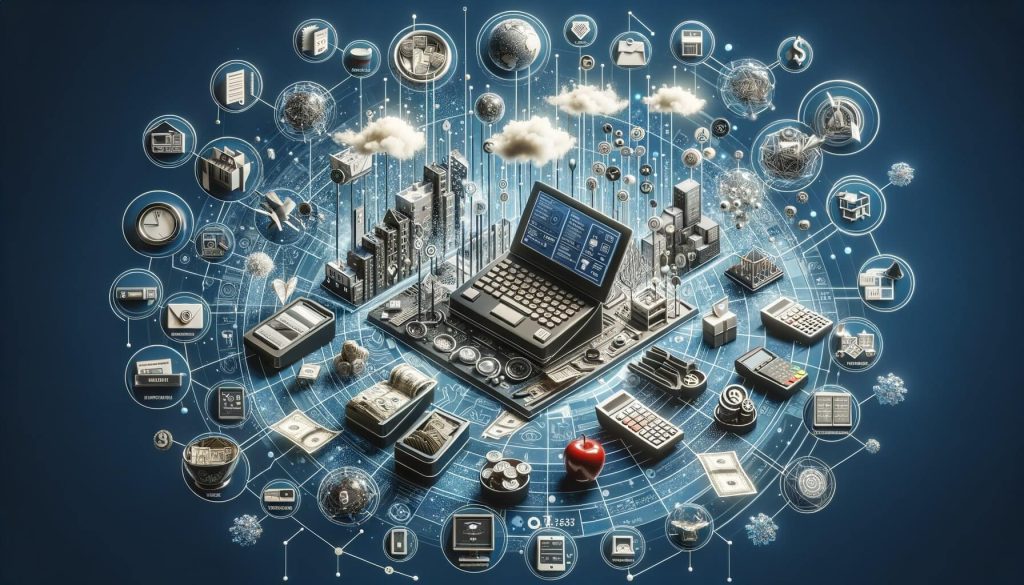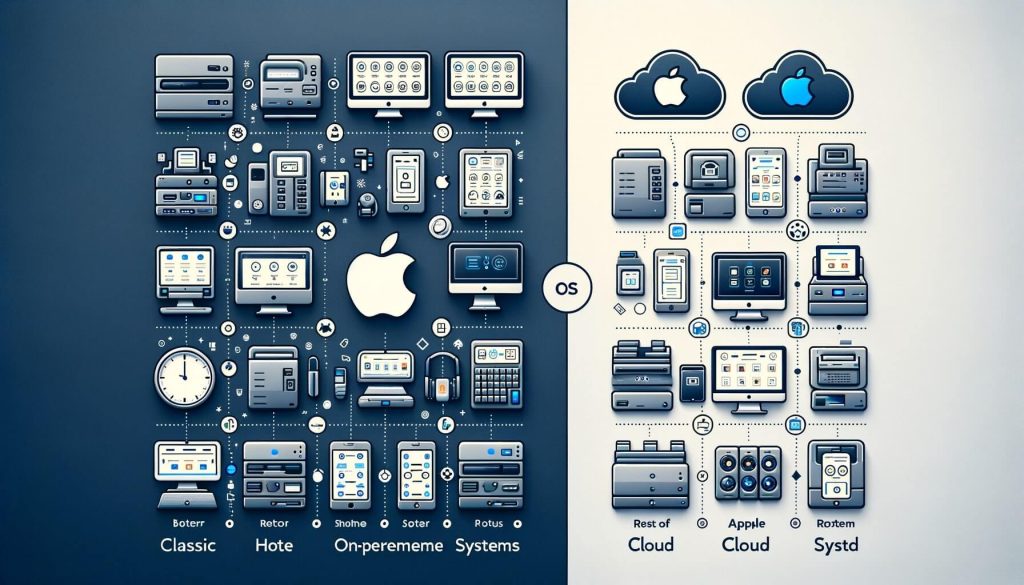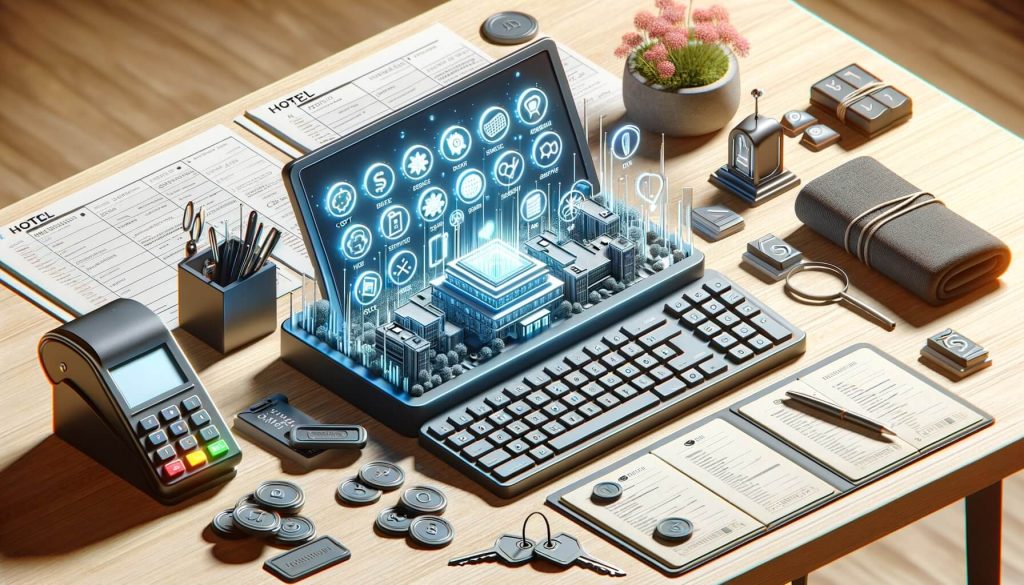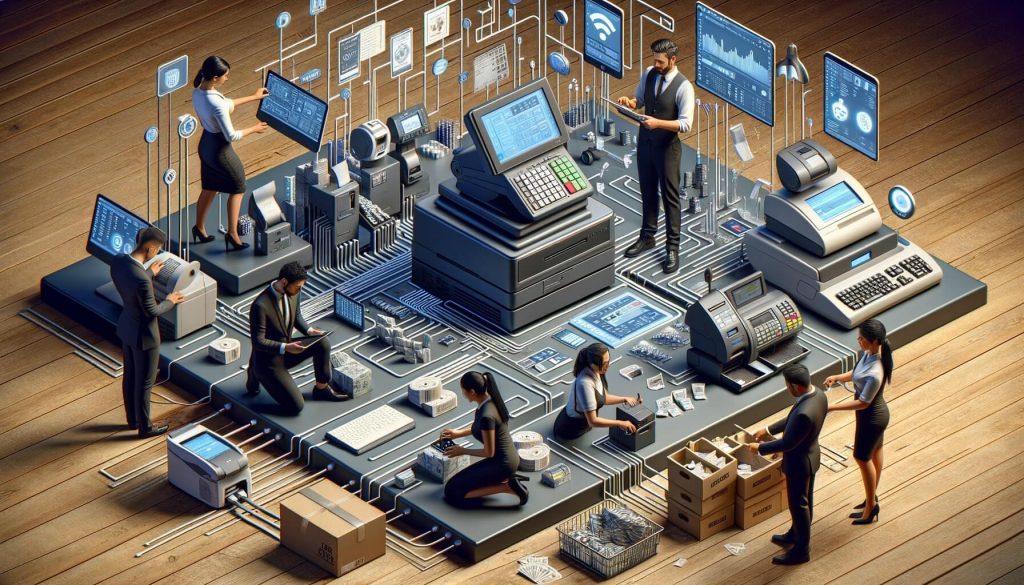In the fast-paced world of the hotel industry, efficiency and accuracy are paramount. Hotel Point of Sale (POS) systems have revolutionized the way hotels manage their operations, from front desk transactions to restaurant and bar sales.
A hotel POS system is a comprehensive software solution that streamlines and automates various processes, enabling hotels to provide exceptional service to their guests while maximizing revenue.
Benefits of Implementing a Hotel POS System
Implementing a hotel POS system offers numerous benefits for hoteliers. Firstly, it enhances operational efficiency by automating tasks such as order taking, billing, and inventory management. This not only saves time but also reduces the risk of human error.
Additionally, a hotel POS system provides real-time data and analytics, allowing hoteliers to make informed decisions and optimize their operations. It also improves guest experience by enabling faster check-ins, personalized service, and seamless integration with other hotel management systems.
Key Features and Functionality of Hotel POS Systems

Hotel POS systems come equipped with a wide range of features and functionalities designed to meet the specific needs of the hotel industry. These include:
1. Order Management: Hotel POS systems allow staff to take orders directly from guests, eliminating the need for manual order taking. Orders can be customized, modified, and sent directly to the kitchen or bar for preparation.
2. Billing and Invoicing: Hotel POS systems generate accurate bills and invoices, including taxes and service charges. They can also split bills, accept multiple payment methods, and process payments securely.
3. Inventory Management: With a hotel POS system, hotels can efficiently manage their inventory by tracking stock levels, generating purchase orders, and receiving goods. This helps prevent stockouts and reduces wastage.
4. Reporting and Analytics: Hotel POS systems provide detailed reports and analytics on sales, inventory, and staff performance. These insights enable hoteliers to identify trends, make data-driven decisions, and optimize their operations.
5. Integration with Other Systems: Hotel POS systems seamlessly integrate with other hotel management systems, such as property management systems (PMS) and customer relationship management (CRM) systems. This ensures smooth data flow and enhances overall efficiency.
Types of Hotel POS Systems: On-Premise vs Cloud-Based

Hotel POS systems are available in two main types: on-premise and cloud-based.
1. On-Premise POS Systems: On-premise POS systems require hotels to install the software on their own servers and manage it internally. While these systems offer more control and customization options, they require a significant upfront investment and ongoing maintenance.
2. Cloud-Based POS Systems: Cloud-based POS systems, on the other hand, are hosted on remote servers and accessed via the internet. These systems offer greater flexibility, scalability, and cost-effectiveness, as hotels only pay a monthly subscription fee. They also provide automatic software updates and data backups.
Factors to Consider When Choosing a Hotel POS System

When selecting a hotel POS system, several factors should be taken into consideration:
1. Scalability: The system should be able to accommodate the hotel’s current needs and future growth. It should be easily scalable to handle increased transaction volumes and additional outlets.
2. Integration Capabilities: The POS system should seamlessly integrate with other hotel management systems, such as PMS, CRM, and accounting software. This ensures smooth data flow and eliminates the need for manual data entry.
3. User-Friendliness: The system should be intuitive and easy to use, requiring minimal training for staff. A user-friendly interface enhances efficiency and reduces the risk of errors.
4. Security: The POS system should have robust security measures in place to protect sensitive guest information and prevent unauthorized access. This includes encryption, tokenization, and compliance with industry standards.
5. Customer Support: It is essential to choose a POS system provider that offers reliable customer support, including 24/7 technical assistance and regular software updates. This ensures that any issues or concerns can be promptly addressed.
How to Set Up and Install a Hotel POS System

Setting up and installing a hotel POS system requires careful planning and execution. The following steps outline the process:
1. Assess Requirements: Identify the specific needs and requirements of the hotel, such as the number of outlets, types of transactions, and integration with other systems.
2. Choose a Provider: Research and select a reputable POS system provider that offers the features and functionalities required by the hotel.
3. Hardware Selection: Determine the hardware components needed, such as touchscreen terminals, printers, cash drawers, and card readers. Ensure compatibility with the chosen POS system.
4. Network Setup: Set up a reliable and secure network infrastructure to support the POS system. This includes configuring routers, switches, and firewalls.
5. Software Installation: Install the POS system software on the designated hardware devices. Configure the system settings and customize it according to the hotel’s requirements.
6. Data Migration: If transitioning from an existing POS system, migrate the data to the new system. This includes menu items, pricing, customer information, and inventory data.
7. Staff Training: Provide comprehensive training to staff members on how to use the POS system effectively. This includes order taking, billing, and inventory management processes.
8. Testing and Go-Live: Conduct thorough testing of the POS system to ensure all functionalities are working correctly. Once satisfied, go live with the system and monitor its performance closely.
Integrating a Hotel POS System with Other Hotel Management Systems
Integration between a hotel POS system and other hotel management systems is crucial for seamless operations and data flow. The following integrations are commonly implemented:
1. Property Management System (PMS): Integration with the PMS allows for real-time room availability updates, guest billing, and automatic posting of charges to guest folios.
2. Customer Relationship Management (CRM) System: Integration with the CRM system enables hotels to capture guest preferences, track loyalty programs, and provide personalized service.
3. Accounting Software: Integration with accounting software automates financial processes, such as posting sales data, generating financial reports, and reconciling accounts.
4. Inventory Management System: Integration with an inventory management system ensures accurate tracking of stock levels, automatic purchase order generation, and seamless inventory updates.
Training and Support for Hotel POS System Users
To ensure the successful implementation and utilization of a hotel POS system, comprehensive training and ongoing support are essential. The following training and support measures should be considered:
1. Initial Training: Provide thorough training to all staff members who will be using the POS system. This includes hands-on practice, role-specific training, and troubleshooting guidance.
2. User Manuals and Documentation: Create user manuals and documentation that outline the system’s functionalities, processes, and troubleshooting steps. These resources should be easily accessible to staff members.
3. Help Desk Support: Establish a dedicated help desk or support team that can assist users with any issues or questions related to the POS system. This can be done through phone, email, or live chat support.
4. Regular Training Updates: Conduct regular training sessions to keep staff members updated on new features, system enhancements, and best practices. This ensures that they are utilizing the system to its full potential.
5. Software Updates and Maintenance: Stay up to date with the latest software updates and patches provided by the POS system provider. Regular maintenance and updates help ensure system stability and security.
Common Challenges and Solutions in Hotel POS System Implementation
Implementing a hotel POS system can come with its fair share of challenges. However, with proper planning and proactive measures, these challenges can be overcome. Some common challenges and their solutions include:
1. Resistance to Change: Staff members may resist adopting a new POS system due to fear of the unknown or a lack of understanding. To overcome this, provide comprehensive training, emphasize the benefits of the system, and involve staff in the decision-making process.
2. Data Migration Issues: Migrating data from an existing POS system to a new one can be complex and time-consuming. To mitigate this, conduct thorough data cleansing, ensure compatibility between systems, and perform extensive testing before going live.
3. Integration Problems: Integrating the POS system with other hotel management systems may encounter compatibility issues or data synchronization problems. Engage with experienced system integrators and conduct thorough testing to ensure seamless integration.
4. Technical Glitches: Like any software system, a hotel POS system may experience technical glitches or downtime. To minimize disruptions, choose a reliable POS system provider, implement regular maintenance, and have a backup plan in place.
Frequently Asked Questions about Hotel POS Systems
Q1. What is a Hotel POS system?
A Hotel POS system is a software solution that enables hotels to manage their operations, streamline processes, and enhance the overall guest experience. It can handle various aspects of a hotel’s daily operations, including front desk operations, restaurant management, and inventory management.
Q2. How does a Hotel POS system improve efficiency?
A Hotel POS system improves efficiency by automating tasks, reducing manual errors, and saving time. It eliminates the need for paperwork, streamlines processes, and provides real-time information, enabling staff to work more efficiently.
Q3. Can a Hotel POS system integrate with other hotel management systems?
Yes, a Hotel POS system can integrate with other hotel management systems, such as property management systems (PMS) and customer relationship management (CRM) systems. Integration allows for seamless flow of information across departments, eliminating the need for manual data entry and reducing the risk of errors.
Q4. How can a Hotel POS system enhance the guest experience?
A Hotel POS system enhances the guest experience by providing a user-friendly interface for placing orders, requesting services, and making payments. It also enables hotels to personalize guest experiences by accessing guest preferences, past purchases, and special requests.
Q5. What are the key features of a Hotel POS system?
Key features of a Hotel POS system include front desk operations, restaurant management, inventory management, and reporting and analytics. These features enable hotels to efficiently manage their operations, track sales and revenue, and make data-driven decisions.
Conclusion
In conclusion, a hotel POS system is a powerful tool that can significantly enhance the efficiency, accuracy, and guest experience in the hotel industry. By automating processes, providing real-time data, and integrating with other hotel management systems, a hotel POS system streamlines operations and enables hotels to deliver exceptional service.
When choosing a hotel POS system, factors such as scalability, integration capabilities, user-friendliness, security, and customer support should be considered.
Proper setup, installation, training, and ongoing support are crucial for successful implementation. While challenges may arise during the implementation process, proactive measures and effective problem-solving can ensure a smooth transition and maximize the benefits of a hotel POS system.

